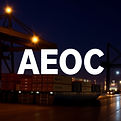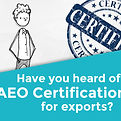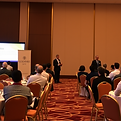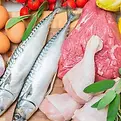JOIN GOLDEN BIZ CONSULTANCY NOW FOR GROWTH

Authorised Economic Operator (AEO) Consultant
Many international trading companies are now insisting that all business partners within their international supply chain have Authorised Economic Operator (AEO) certification. As an AEO consultant, I provide tailored consulting and interim services to assist companies through the complete AEO application process and to become fully customs-compliant. As an AEO consultant, I will assist you with obtaining your AEO status, and in case your company is already AEO-certified, I will help you maintain your customs-compliant international supply chains and AEO status.

Customs-Trade Partnership Against Terrorism (C-TPAT)
Following the 9/11 terrorist attack within the USA, the U.S. government introduced the Customs-Trade Partnership Against Terrorism (C-TPAT) certification program. C-TPAT was launched in November 2001, and C-TPAT business partners work with U.S. Customs and Border Protection (CBP) to protect U.S. international supply chains from the concealment of terrorist weapons, including weapons of mass destruction. The trade partnership provides the highest level of customs-compliant international supply chain security in exchange for reduced inspections of cargo by CBP.
My C-TPAT case study provides an in-depth example of the C-TPAT application process. contact for more
%20of%20the%20united%20states%20.jpg)
USA Authorized Economic Operator (AEO)
Achieve Authorized Economic Operator (AEO) status with our comprehensive AEO certification services. We guide you through the application process, compliance requirements, and audits to enhance your supply chain security and streamline customs procedures.
In 2005, the World Customs Organization (WCO) implemented the SAFE Framework of Standards to Secure and Facilitate Global Trade (SAFE Framework) to prevent international terrorism. As a result, a customs-to-business partnership was introduced in 2008 by the WCO called the Authorised Economic Operator (AEO). Like C-TPAT, the AEO programme enables traders to work voluntarily with customs authorities to enhance customs compliant international supply chain security and facilitate legitimate trade.
.jpg)
UK Authorized Economic Operator (AEO)
HMRC states that the Authorised Economic Operator (AEO) status is an internationally recognised quality mark that shows your business’s role in the international supply chain is secure and has customs control procedures that meet Authorised Economic Operator standards and criteria.
There are two types of status:
-
Authorised Economic Operator Customs Simplification (AEOC)
-
Authorised Economic Operator Security and Safety (AEOS)
-
You can apply for customs simplification or security and safety, or you can apply for both.
Get strategic legal advisory services from My Site to protect your business interests and ensure compliance with laws and regulations. Our team of legal experts offers proactive solutions and risk management strategies to safeguard your operations.

AEO Business Benefits
Authorised Economic Operator Customs Simplification (AEOC) is a program designed to enhance international supply chain security and facilitate legitimate trade. By obtaining AEOC status, businesses can benefit from:
- Simplified Customs Procedures:
- Faster clearance times at customs, reducing delays and improving operational efficiency
- Fewer documentation checks and physical inspections, saving time and resources
- Priority Treatment:
- Priority processing at border control posts, ensuring timely clearance of goods
- Dedicated processing lanes for expedited customs clearance
- Reduced Costs:
- Lower collateral against guarantees, minimizing financial burdens
- Reduced or waived comprehensive guarantees, easing financial obligations
- Increased Security:
- Enhanced reputation and credibility with international partners, demonstrating commitment to compliance and security
- Mutual recognition agreements with other customs authorities, facilitating smoother trade
- Additional Benefits:
- Self-assessment and supplementary goods declaration, streamlining customs procedures
- Dedicated help desk for AEOC-registered businesses, providing support and guidance
- Faster disbursal of drawback amounts and refunds, improving cash flow
To be eligible for AEOC status, businesses must ¹:
- Be a legal entity
- Be established in the relevant country or region (e.g., Great Britain or Northern Ireland)
- Be actively involved in customs operations and international trade
- Hold an Economic Operator Registration and Identification (EORI) number
AEOC certification levels may vary, with benefits increasing with each level ²:
- AEO T1 Certificate: Basic level, offering priority treatment and fewer inspections
- AEO T2 Certificate: Additional benefits, including authorization for simplified customs procedures
- AEO T3 Certificate: Further benefits, such as timely grant of refunds and exemption from submission of bank guarantees
By obtaining AEOC status, businesses can improve their supply chain efficiency, reduce costs, and enhance their reputation in the international trade community ³.
_.jpg)
Authorised Economic Operator Customs Simplification (AEOC)
HMRC states that under AEOC, traders could benefit from:
-
a faster application process for customs simplifications and authorisations
-
a lower risk score, which may reduce the number of checks customs carry out on your documents and goods
-
a guarantee waiver up to the level of your deferment account
.jpg)
AEO Certification
Achieve Authorized Economic Operator (AEO) status with our assistance. We guide you through the AEO certification process, enhancing your supply chain security and trade facilitation.
.jpg)
Authorised Economic Operator Security and Safety (AEOS)
HMRC states that under AEOs, traders could benefit from:
-
a lower risk score, which may reduce the number of checks customs carry out on your documents and goods
-
your consignments receiving priority treatment for customs controls
-
reduced declaration requirements for entry and exit summary declarations
-
reciprocal arrangements and mutual recognition

Who can apply for AEO?
To apply, you must be part of the international supply chain, which starts from the manufacturing process through to the delivery of goods using import and export procedures such as:
-
manufacturers
-
exporters
-
freight forwarders
-
warehouse keepers
-
customs agents
-
carriers
-
importers
-
port operators
-
secure freight parking operatives
-
airline loaders
In addition, your company must:
-
be a legal entity
-
be established in Great Britain or Northern Ireland
-
be actively involved in customs operations and international trade
-
have an Economic Operator Registration and Identification (EORI) number

AEO Consultancy Services
I provide consulting services to assist you with achieving AEO status. My services include reviewing your current customs processes, completing a feasibility study, and documenting detailed processes and procedures for a successful AEO application. My consulting services also include assisting you with the completion of application forms while ensuring relevant supplementary evidence is available for review by HMRC.

What is a safety and security declaration?
Achieve Authorized Economic Operator (AEO) status with our assistance. We guide you through the AEO certification process, enhancing your supply chain security and trade facilitation.
Border officials utilise a Safety and Security Declaration (SSD) to assess the possible risk that items crossing their border pose to their jurisdiction. It has nothing to do with taxes and duties. Declarations come in two varieties: exit summary declarations (EXS) and entry summary declarations (ENS).

UK Safety and Security Declarations
New Requirement
A safety and security statement, sometimes referred to as an "entry summary declaration" or "ENS," will be required for any items imported into the United Kingdom from the European Union as of January 31, 2025. Companies have been urged to begin filing Safety and Security Declarations before this deadline if they are prepared to do so.
What is a safety and security declaration?
Border officials utilise a Safety and Security Declaration (SSD) to assess the possible risk that items crossing their border pose to their jurisdiction. It has nothing to do with taxes and duties. Declarations come in two varieties: exit summary declarations (EXS) and entry summary declarations (ENS).
Companies that currently import from non-EU nations or export from the UK to the EU are already obliged to provide safety and security declarations.
Completing a safety and security statement
Twenty necessary fields will need to be filled out for every declaration. Additionally, there will be eight conditional fields that must be filled out only under specific conditions. The remaining nine fields can be left empty or filled in.
Legal Requirement
HM Revenue and Customs state that “the legal requirement to submit a declaration lies with the carrier. This is the operator of the active means of transport on, or in, which the goods are brought into the customs territory. It is the carrier’s responsibility to make sure that the declaration is submitted within the legal time limits, and it must only be done by a representative or third party with the carrier’s knowledge and consent.”
If you would like to receive more information regarding Safety and Security Declarations, please let us know by sending an e-mail to
UK Safety and Security Declarations

Import Checks on EU, USA& canada Food and Animal Products
UK Government Response, April 19th
In response to the headlines today, the Government issued the following update via the Defra Press Office regarding the upcoming border checks:
There has been reporting this morning (19 April) claiming that health and safety checks for EU imports won’t be “turned on” as planned from April 30, 2024. This is not the case; as has been previously outlined, we will be commencing checks on April 30.

Government Statement
A UK government spokesperson said:
"Checks are commencing from 30 April and, as we have always said, the medium and high-risk goods posing the greatest biosecurity risk are being prioritised as we build up to full check rates and high levels of compliance. Taking a pragmatic approach to introducing our new border checks minimises disruption, protects our biosecurity and benefits everyone – especially traders.
There has been extensive engagement with businesses over the past year – with our approach welcomed by several trade associations and port authorities. We will continue to work with and support businesses throughout this process to maintain the smooth flow of imported goods.
We are confident we have sufficient capacity and capability across all points of entry to handle the volume and type of expected checks. It is important to remember the cost of our border checks is negligible compared to the impact of a major disease outbreak on our economy and farmers."

Post-Brexit Border Controls
As new post-Brexit border controls kick in on April 30th, the UK government has reportedly informed port health officials that it will not “turn on” health and safety checks for EU imports.
According to the Financial Times, a presentation created by the Department for Environment, Food and Rural Affairs (Defra) emphasised the possibility of "significant disruption" if the new regulations were put into place. It stated unequivocally that the systems will not be completed on schedule.
Several trade associations reportedly requested that the checks' implementation be postponed until at least autumn.
Five times already, the border restrictions have been postponed due to concerns that they may generate chaos and increase the inflation of petrol prices.
The UK Government stated in a press release dated January 31, 2024:

Controls introduced on April 30, 2024
-
The new checks at the non-West Coast border on medium-risk EU-origin goods will be introduced.
-
All goods to which import health controls apply will be required to enter via a point of entry that has the relevant Border Control Post or in the case of plants or plant products, a Control Point designation for those goods.
-
Health certificates and routine checks at the border will no longer be required for low-risk animal products for imported from non-EU countries, with the exception of intelligence-led interventions on low-risk animal products.
-
The requirements for import controls on certain low-risk plants and plant products from non-EU countries will start to be removed, where supported by risk assessments. Health certificates and routine checks at the border will not be required for such products.
-
Medium-risk animal products will be subject to reduced levels of intervention at the border, with identity and physical check levels being lower than now for imports from non-EU countries.
-
The introduction of Common Health Entry Documents (CHEDs) for all live animal, High-Risk Food and Feed of Non-Animal Origin (HRFNAO) and animal product imports from the EU is required to support the introduction of identity and physical checks from the end of April 2024. CHEDs will replace the Import Notifications (IMPs) currently required for live animal, HRFNAO and animal product imports from the EU. There is currently no HRFNAO of EU origin listed, so this requirement refers to where HRFNAO from outside the EU has been placed on the EU market and has not been subject to any further processing.
If you would like to receive more information on EU imports, please let us know by contacting GOLDEN BIZ CONSULTANCY LIMITED TODAY